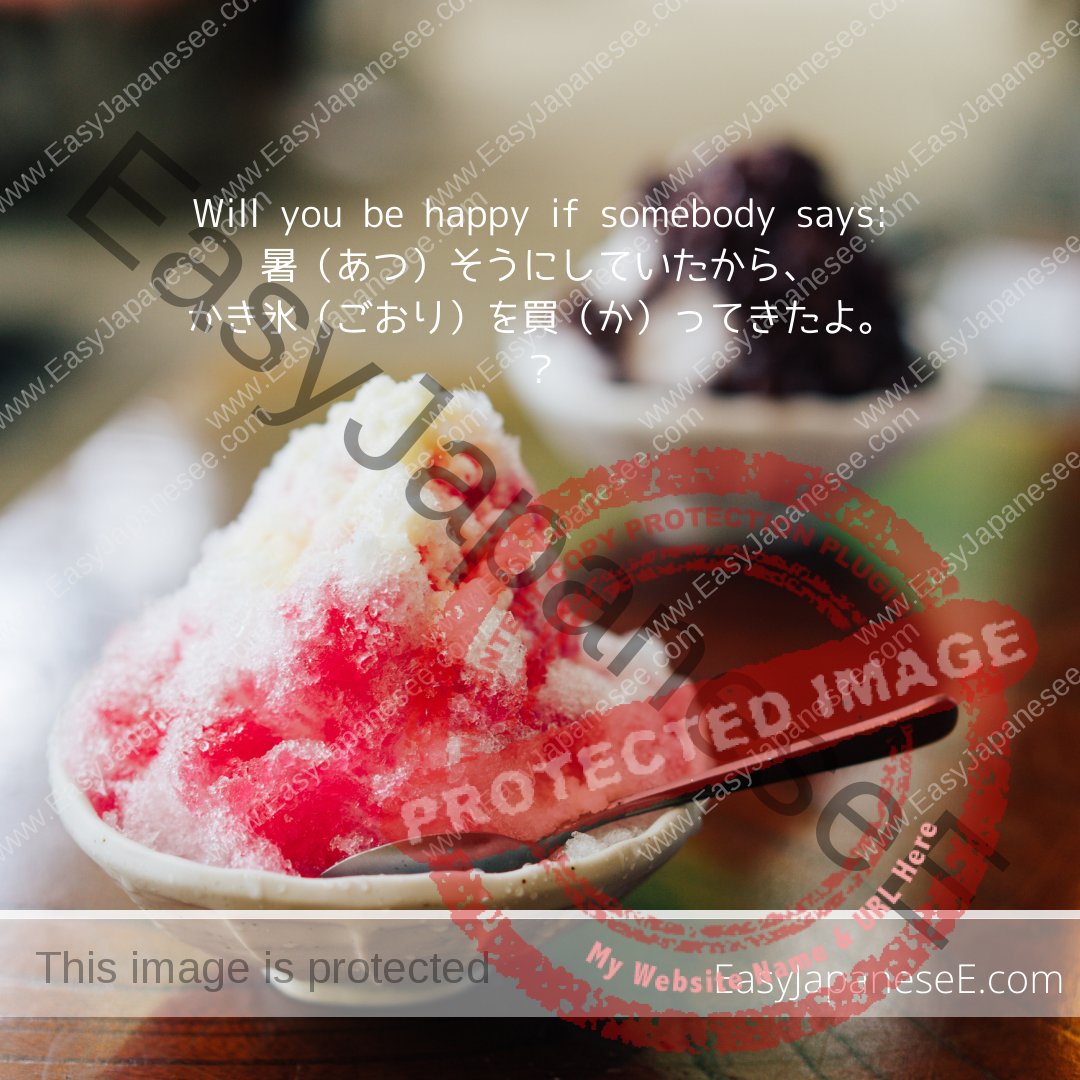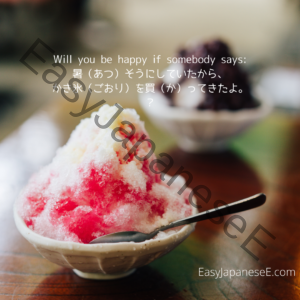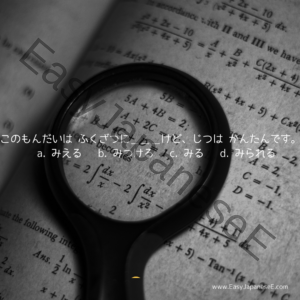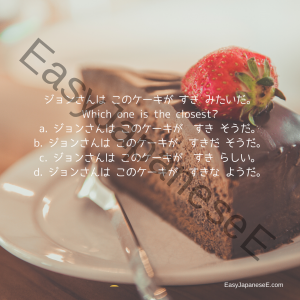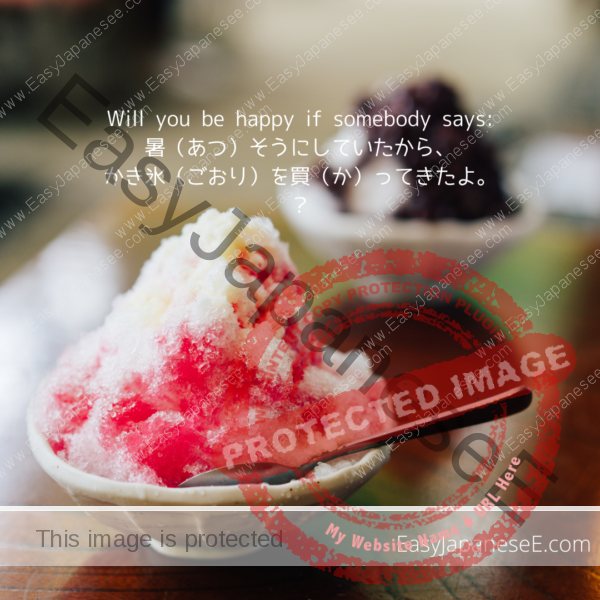
Today’s Grammar Point: ~そうにする/~そうにしている
~そうにする/~そうにしている is another way of saying ~そうだ/~そうです, which means “to look ~” or “to seem ~”. ~そうにする/~そうにしている follows an adjective stem which describes a person’s feeling or sense. As the expression includes the verb する/している, ~そうにする/~そうにしている is often used when you assume someone’s feeling through his/her action.
Connections
- [いadjective] + そうにする/そうにしている
いadjective stem is an いadjective without the ending い. - [なadjective] + そうにする/そうにしている
Examples
息子が楽しそうにする様子を見ると、私も 楽しくなる。
Seeing my son have fun makes me happy too.あの犬はいつも嬉しそうにしている。
That dog always looks happy.子どもが悲しそうにするのを見るのは、とても辛い。
It’s very painful to see a child looking sad.暑そうにしていたから、かき氷を買ってきたよ。(Today’s Caption)
I bought you shaved ice because you looked feeling hot.あの犬、あそこでずっと寒そうにしているよ。
That dog has been looking cold over there.あの二人は去年結婚して、いつも幸せそうにしています。
They got married last year and they always look happy.弟は去年は真面目そうにしていたんですが、今年は全然勉強していません。
My brother behaved like a studious boy last year but he hasn’t been studying at all this year.昨日、ビデオ電話をしましたが、祖母は元気そうにしていました。
I made a video call yesterday and my grandmother looked well.そういえばジョンさんは納豆が嫌そうにしていましたね。
Now when I think about it John didn’t look like enjoying natto.コーヒーが欲しそうにしていたから、 買ってきた。
I bought coffee for him because he looked as if he wanted a cup.
Answer to Today’s question: I would be. How about you?
For meaning, see above.
- そう
~そうにみえる
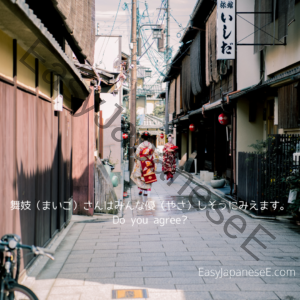
~そうになる/そうになった
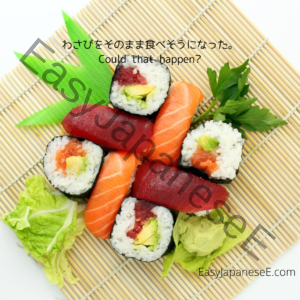
~そうな/そうに
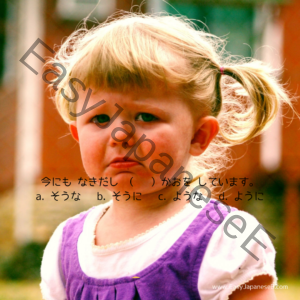
~そうです
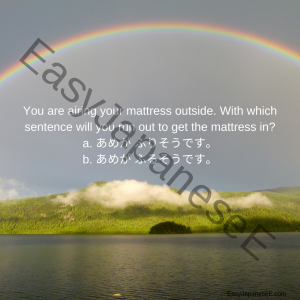
If you liked this article, please share it with your friends using the social media buttons below. Also, your clicks on ads on this page help covering the cost of running this website. Your support will be much appreciated.
